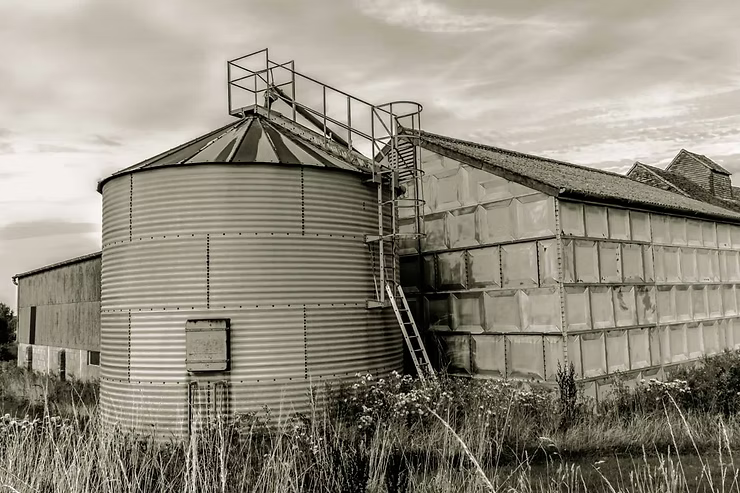Are farms really dangerous places?
Many people picture farming as peaceful and safe, but the reality is very different. Agriculture is one of the UK’s most hazardous industries, with confined spaces such as silos, wells, tanks and manure pits posing some of the greatest risks. Without clear procedures, escape plans, and proper safety signage, these hidden dangers can have life-threatening consequences.
This guide explains the dangers of confined spaces on farms, the importance of risk assessments, safe entry and escape plans, and why safety signs are vital for protecting workers and visitors.
What is a confined space on a farm?
On a farm, confined spaces aren’t just silos or tanks. They also include:
-
Grain bins and silos (risk of engulfment and suffocation)
-
Manure pits (toxic gas build-up and drowning hazards)
-
Wells (low oxygen and hidden gases)
-
Chemical storage tanks (fume exposure and drowning risk)
All these spaces have limited access, poor natural ventilation, and the potential for hazardous gases. Recognising them is the first step in keeping farm workers safe.
What hazards do silos, wells, and tanks present?
-
Silos – Grain can behave like quicksand, engulfing workers in seconds.
-
Wells – Old or disused wells may contain low oxygen or poisonous gases.
-
Tanks – Used for manure or chemicals, they can trap toxic fumes and present drowning risks.
These environments must never be entered without a risk assessment, correct PPE, and clear safety procedures.
How can farmers work safely in confined spaces?
Before entering any confined space, follow these steps:
-
Carry out a full risk assessment.
-
Ensure ventilation to disperse gases.
-
Test air quality with a gas detector.
-
Lock off machinery before entry.
-
Wear suitable PPE (harnesses, respirators).
-
Never work alone – always use a buddy system.
Why are escape plans so important?
Even with precautions, emergencies can occur. Every farm should:
-
Have clear, unobstructed exit routes.
-
Provide multiple escape options.
-
Train staff to use radios or whistles for emergency communication.
-
Run regular drills so everyone knows what to do under pressure.
Why are safety signs vital for confined spaces?
Clear signage saves lives. Farm safety signs should:
-
Be highly visible and weather-resistant.
-
Warn of specific dangers such as toxic gases, drowning hazards, or restricted access.
-
Be simple, clear, and, if needed, multilingual.
-
Inform workers and visitors alike about hidden dangers.
Signs act as a constant reminder of risks and encourage safe behaviour. They also help farms comply with UK HSE farm safety guidance.
How often should farm safety training be done?
Regular training is just as important as safety equipment. Sessions should cover:
-
Identifying confined spaces
-
Hazards of silos, wells, and tanks
-
Correct PPE use
-
Entry and escape procedures
-
Understanding and following safety signage
Refresher training ensures that protocols don’t slip and keeps safety front of mind.
Final thoughts
Farm safety is not about one-off actions; it’s about building a culture of awareness. By combining proper training, escape planning, PPE, and effective signage, farms can drastically reduce the risks of confined spaces.
At The Safety Sheep Store, we supply a wide range of farm safety signs designed to withstand outdoor conditions and help you meet your legal duties under UK health & safety law. Investing in clear signage is a small step that makes a big difference to farm safety.



Share:
Hidden Dangers in Farm Buildings
Farm Safety: Protecting Hearing and Limbs